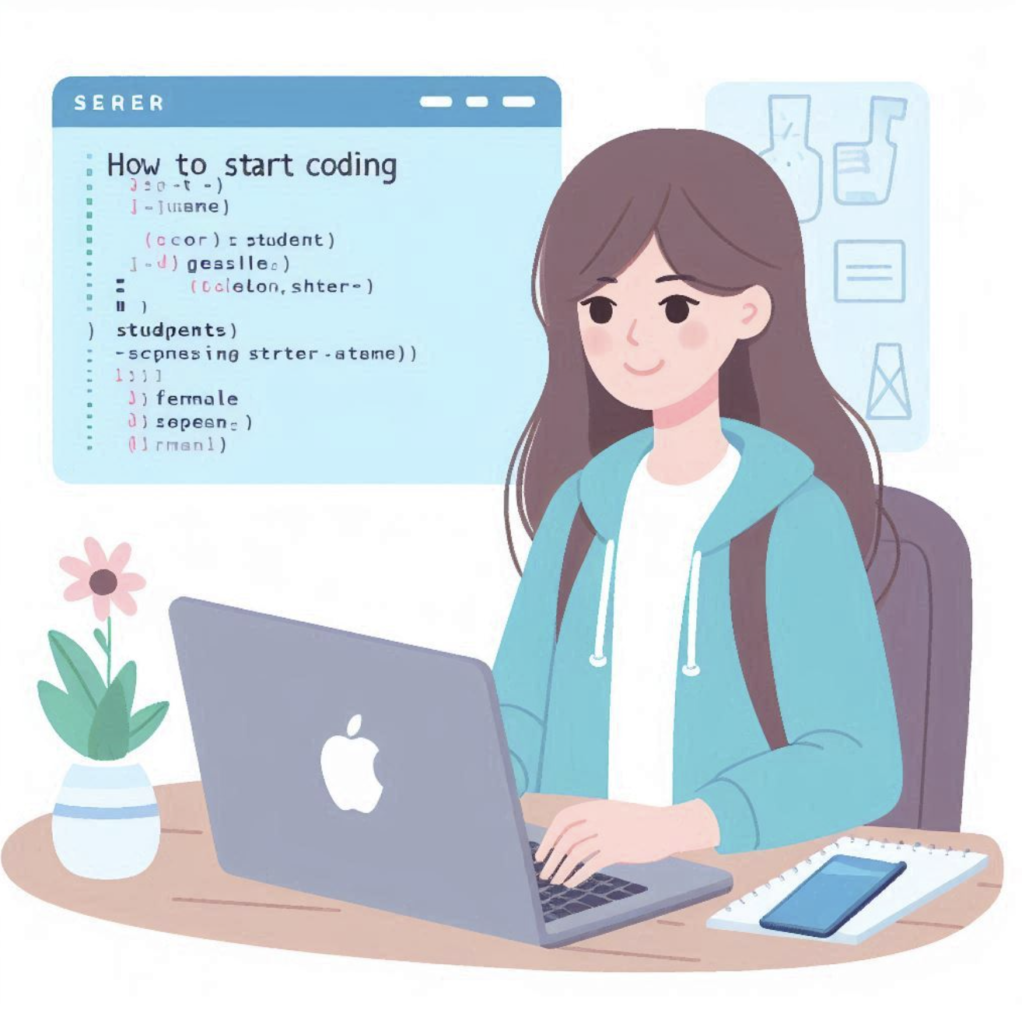Coding has become an essential skill in today’s digital age. Whether you’re interested in web development, data science, game development, or any other tech field, learning to code is the first step. Here’s a comprehensive guide to help you start your coding journey as a student.
Coding skills are in high demand across various industries. By learning to code, you’re opening doors to numerous career opportunities.
Coding teaches you to think logically and solve problems systematically. These skills are valuable in any field, not just tech.
With coding, you can bring your ideas to life. Whether it’s a personal website, a mobile app, or a game, coding allows you to build and create.
Why: Python is beginner-friendly due to its simple syntax and readability. It’s widely used in web development, data science, and automation.
Why: JavaScript is essential for web development. It’s used to create interactive web pages and can be run on both the client-side and server-side.
Why: HTML and CSS are the building blocks of web development. HTML structures web content, while CSS styles it.
Why: Java is a robust, object-oriented language used in many enterprise environments and Android app development.
Start by learning the basic syntax of your chosen language. Understand how to write and run simple programs.

Control structures like loops, conditionals, and functions are fundamental. Practice writing programs that use these constructs.
Get familiar with basic data structures such as arrays, lists, and dictionaries. Understanding these will help you manage and manipulate data effectively.
Consistency is key. Try to code every day, even if it’s just for a short period. Regular practice helps reinforce what you’ve learned.
Apply your knowledge by working on projects. Start with small projects like a personal blog or a simple game and gradually take on more complex tasks.
Engage with other learners and experienced coders. Join forums, online communities, or local coding clubs. Discussing problems and sharing knowledge can significantly enhance your learning experience.
Making mistakes is a natural part of learning. Debugging and fixing errors are valuable skills that will make you a better coder.
Read code written by others. Platforms like GitHub host a plethora of open-source projects. Analyzing and understanding different coding styles and practices can provide valuable insights.
Once you’re comfortable with the basics, start exploring advanced topics like algorithms, data structures, and design patterns.
Version control systems like Git are essential for managing code, especially in collaborative projects. Learn how to use Git and GitHub to track changes and collaborate with others.
Real-world experience is invaluable. Look for internships or part-time jobs where you can apply your coding skills and learn from professionals in the field.
Starting your coding journey can seem daunting, but with the right approach and resources, you can master the fundamentals and build a solid foundation. Remember, persistence and practice are key. Keep coding, keep learning, and enjoy the process of creating and solving problems with code.
Ready to start coding? Check out our courses tailored for beginners and embark on your coding journey today!